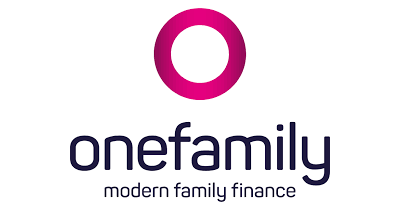Is Equity Release A Good Idea
Why is Equity Release becoming more popular?
Equity Release is becoming an increasingly popular way to unlock tax free cash from your home if you are aged 55 or over. There’s no need to move home or worry about monthly repayments, and a growing number of financial institutions provide viable equity release plans for you to choose from. Lifetime Mortgages are the most popular type of plan, and you have the option to draw down a cash lump sum or several instalments to boost your disposable wealth or income in retirement.
That said, if you are worried about your family’s inheritance being affected, you may want to explore the idea further before deciding whether equity release is a good idea for you. Some schemes offer the option to protect a percentage of your property’s value, effectively ringfencing part of your inheritance.
It’s a complex area of financial planning, which is why you should always seek expert professional advice from an independent financial specialist. I have been an equity release broker for many years, acting as a completely independent intermediary for clients seeking equity release solutions. As such, I can offer market intelligence and act as an agent for you, providing personalised advice and assistance throughout the process to arrive at a tailored equity release plan for you. Why not contact me on 01903 254993 to find out more?
Is Equity Release a good idea for you?
The basic idea behind the concept of equity release is that you can release the money tied up in your home while carrying on living there. The cash thus obtained can be used for whatever you wish. Whether you are considering home improvements, planning a holiday of a lifetime, helping out a family member financially, or boosting your regular retirement income, equity release could be the perfect financial vehicle to help you achieve your goals.
The money you receive is tax free and you can choose not to make monthly repayments. The loan plus interest accrued is repaid when the property is sold, which will happen when you move into long-term care or pass away.
In order to be eligible for a Lifetime Mortgage, you must be aged 55 or over, own your own home and have sufficient equity – the difference between the value of your property and any outstanding finance secured against it – in your property. Your property doesn’t need to be mortgage-free, since any existing loans can be repaid with the money freed through equity release.
There’s a handy calculator here to help you find out how much money you might be able to release.
Proudly Working With
Is Equity Release safe?
Equity release may have had a dubious reputation back in the 1980s, but thankfully the industry is now fully regulated by the Financial Conduct Authority (FCA). What’s more, the Equity Release Council (ERC), the overseeing industry body, offers additional product standards and safeguards to protect the consumer such as:
- Lifetime Mortgages which come with fixed or capped interest rates for the lifetime of the loan
- Right to stay in the property for life (or until you move into long-term care) as long as you abide by the loan’s T&Cs
- Right to move house as long as the new property satisfies the conditions of your equity release provider.
- ‘No NEGATIVE equity guarantee’ for all ERC governed lifetime mortgages, meaning that the amount owed will never be more than the net property value.
The ERC also provides strict rules and guidance for the sales process that all members have to comply with. You can only take out a Lifetime Mortgage if you receive professional financial advice and independent legal advice, so you understand exactly how equity release works.
I am a full member of the Equity Release Council and am committed to putting the best interests of my clients at the forefront of my actions, exercising maximum skill, care and diligence at all times.
If you have any questions about how equity release could work for you, or would like to arrange for a free, no obligation initial meeting with John Whyte Equity Release Specialist, please do not hesitate to get in touch or complete the form here.
FAQs
- Can equity release influence your credit score?
-
No, taking out a Lifetime Mortgage will not affect your credit score. What’s more, since the amount you can borrow depends on your age and the value of your home, your eligibility to apply for equity release won’t be affected by your current credit score either. However discharged bankrupts are not eligible from Equity Release.
- Are your state benefits affected by equity release?
-
Yes, it is possible that equity release may affect certain benefits such your pension, savings or universal credit– it depends on your personal circumstances. It is important to take the advice of a qualified expert, and you can also get more information from the Benefits Agency or Citizens Advice.
- Will your children inherit any debt?
-
No, this should not happen. After your death, the Lifetime Mortgage will be repaid from the proceeds of the sale of the property, and the remaining equity will go to your children. For added security, all Lifetime Mortgages governed by the ERC come with a ‘no negative equity guarantee’, so you will never owe more than your home is worth.
Discover how much you can release with our calculator
Equity Release Sussex is a trading style of The Later Life Lending Network Limited, an Appointed Representative of The Right Mortgage Ltd, which is authorised and regulated by the Financial Conduct Authority (Ref – 649443). Registered in England and Wales no. 09832887. Registered address: 70 St. Johns Close, Knowle, Solihull, England, B93 0NH.
For Independent Equity Release advice we do not charge any upfront fees however,
a fee of up to 1% of the total cash facility arranged is payable (subject to a typical minimum charge of £1,295) on completion for our service in relation to lifetime mortgage contracts plus commission from the lender.
The exact amount will depend on the complexity and work involved in your case and will be confirmed by way of a formal fee agreement.
For Independent Mortgage Advice we charge a fee of up to 1% of your mortgage amount payable (subject to a typical minimum charge of £295 payable on application & £300 on completion (£595 in total) plus commission from lender. The exact amount will depend on the complexity and work involved on your case and will be confirmed by way of a formal fee agreement.
The information contained in this website is subject to UK regulatory regime and is therefore intended for consumers based in the UK













